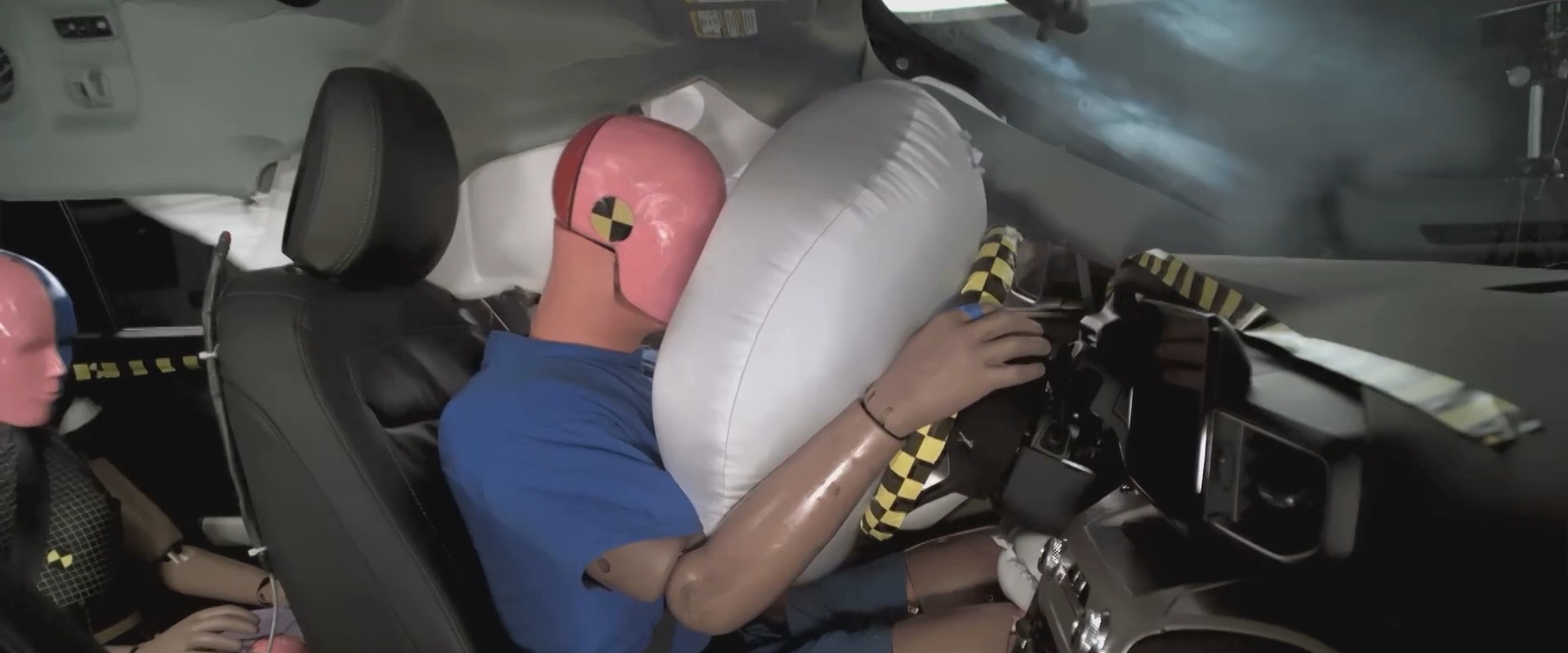Airbag Safety
In 2014, we were all shocked when we first heard about the massive Takata airbag recall. Roughly 40 million vehicles on our roads had defective and potentially deadly airbags. Now, a decade later, about 85% of those suspect airbags have been replaced. But as our Stephanie Hart reveals, there are still millions of defective units out there; and spreading the word is key to saving lives.
STEPHANIE HART: It’s extremely important to create awareness around the Takata airbag recall. That’s because right now in our streets there are 6.2 million defective airbags that need to be replaced.
Here’s the problem: When they’re deployed, they can explode, sending sharp metal fragments flying at 200 miles per hours throughout the cabin which could cause serious injury or death.
This defect, so far, has caused at least 400 injuries and is linked to 27 deaths. This is particularly alarming since an airbag is supposed to save your life, not take it.
FAISAL HASAN: There’s a chemical reaction that takes place in an airbag that allows that airbag to deploy and save your life or the passenger’s life. There was a drying agent that needed to go inside the airbag that did not go into some of these airbags. So now when you have these airbags in states like Florida, Mississippi, South Carolina, California, where you have high heat and humidity and you don’t have that drying agent, those airbags now will explode with incredibly more force.
STEPHANIE HART: Even more troubling is the fact that about 40% of all the malfunctioning airbags are located in states with high heat and humidity, which is a recipe for disaster.
They are: Alabama, California, Florida, Georgia, Hawaii, Louisiana, Mississippi, South Carolina and Texas; that’s according to The National Highway Traffic Safety Administration.
A total of 19 auto makers are involved in this recall. The defective airbags were installed in specific vehicles between model years 2001 and 2015. As you may recall, this massive recall started a decade ago, affecting 67 million airbags.
FAISAL HASAN: Those 19 manufacturers all responded very quickly, whether they had a few cars or a ton of cars in. Some of the manufacturers have actually been sending people to your house, knocking on doors. They funded and worked with non-profits, anything to close out the rest of these recalls.
Right now, we need to create touchpoints, we need to create awareness. People need to go check their VINs and get these airbag recalls closed.
STEPHANIE HART: Essentially, this is a life-or-death situation. However, it had to be handled over time.
FAISAL HASAN: Whenever there’s an open recall, uh, sometimes the parts are not immediately available, and that does make it difficult because the OEMs are ready to close it. But if the parts have not been made, and the problem was this was such a massive recall, there just weren’t enough airbags and airbag parts to fix the recall, so it had to be done over time.
STEPHANIE HART: To find out if your vehicle is involved in the Takata airbag recall, head over to Carfax.com/Recall and enter your VIN number. You will find out immediately if you have a faulty airbag that needs to be replaced. If so, head over to your local dealership and they will fix it for free. The whole process should only take two to four hours, not very long considering this could potentially save your life or your family’s life.






